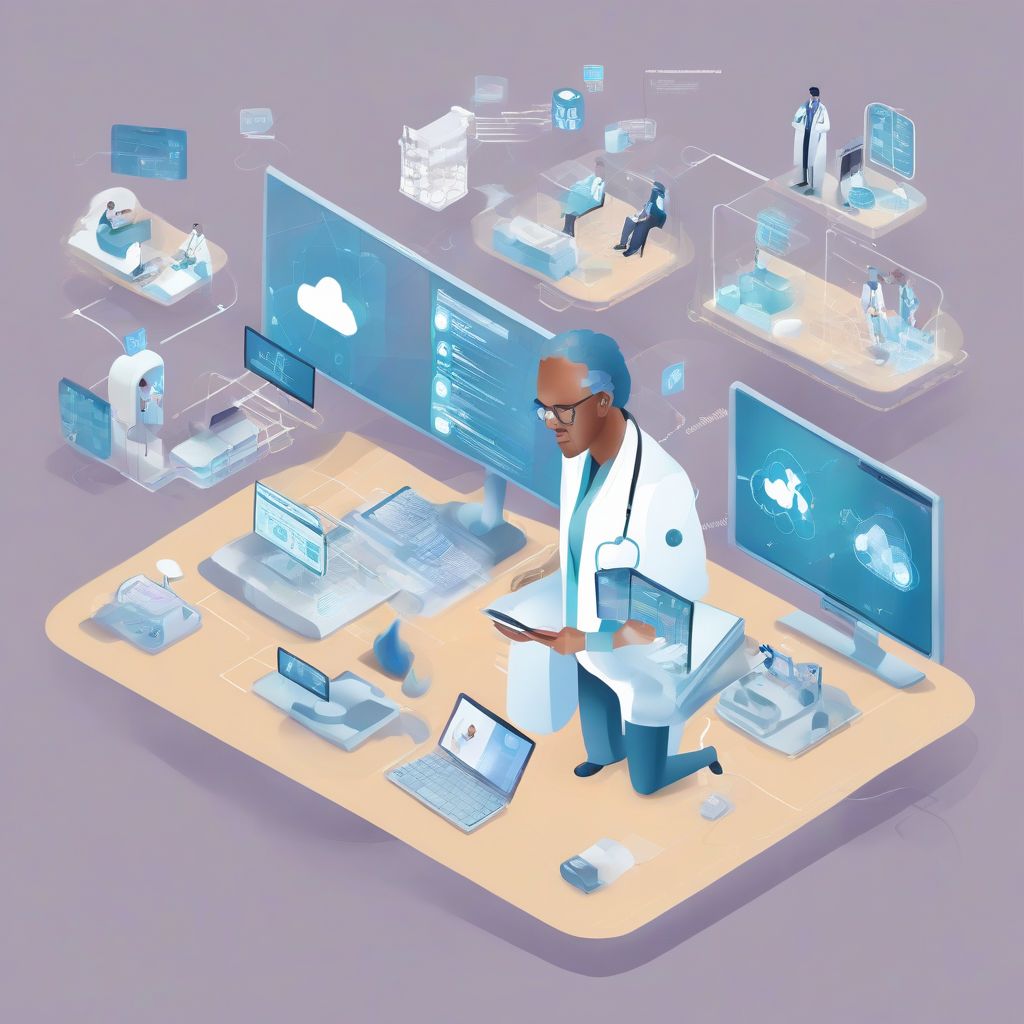Imagine a world where patient data is instantly accessible, diagnoses are more accurate, and medical research takes a giant leap forward. That’s the promise of Cloud Computing In Healthcare. This revolutionary technology is transforming the medical landscape, empowering providers and improving patient care in remarkable ways.
What is Cloud Computing In Healthcare?
At its core, cloud computing involves storing and accessing data and software over the internet instead of on local servers or personal computers. In the healthcare industry, this means electronic health records (EHRs), medical imaging files, and other sensitive data can be securely stored and managed remotely. This allows healthcare providers to access vital information anytime, anywhere, leading to more informed decisions and better patient outcomes.
The Benefits of Embracing the Cloud in Healthcare
The advantages of cloud computing in healthcare are numerous and far-reaching:
Enhanced Data Storage and Security:
- Cloud-based solutions offer virtually limitless storage capacity, eliminating the need for bulky on-site servers.
- Robust security measures, including encryption and access controls, safeguard sensitive patient information from unauthorized access.
Improved Collaboration and Communication:
- Healthcare professionals in different locations can seamlessly share patient data, facilitating faster consultations and more coordinated care.
- Cloud-based platforms streamline communication between doctors, nurses, and other staff members, enhancing workflow efficiency.
Empowering Patients and Promoting Engagement:
- Patients can access their medical records, schedule appointments, and communicate with providers through secure online portals, giving them greater control over their healthcare journey.
- Cloud-based telehealth platforms enable remote consultations, expanding access to care for patients in rural or underserved areas.
cloud.caingong.com/wp-content/uploads/2024/07/cloud-computing-healthcare-66a08c.jpg" alt="Cloud Computing in Healthcare" width="1024" height="1024">Cloud Computing in Healthcare
FAQs about Cloud Computing In Healthcare
1. How Secure is My Medical Data in the Cloud?
Cloud service providers invest heavily in sophisticated security measures to protect patient data. Encryption, access controls, and regular security audits are just some of the ways they ensure your information remains confidential and compliant with regulations like HIPAA.
2. What Happens to My Data if the Internet Goes Down?
Most cloud-based healthcare systems have built-in redundancy and disaster recovery plans. This means your data is backed up in multiple locations, ensuring continued access even if there’s an internet outage.
3. Is Cloud Computing in Healthcare Expensive?
Cloud solutions can actually help healthcare organizations save money in the long run. They eliminate the need for costly hardware, reduce IT maintenance costs, and often operate on a subscription-based model, making budgeting more predictable.
The Future of Healthcare is in the Cloud
The adoption of cloud computing in healthcare is rapidly gaining momentum. As technology continues to advance, we can expect even more innovative applications that will further enhance patient care, accelerate medical research, and shape the future of medicine.
Ready to explore the potential of cloud computing for your healthcare organization? Contact us today to learn more about our cutting-edge solutions.
